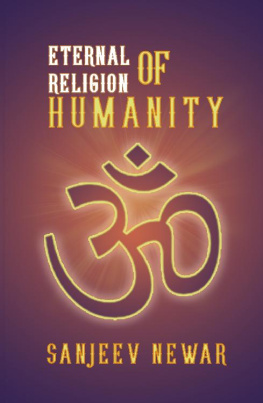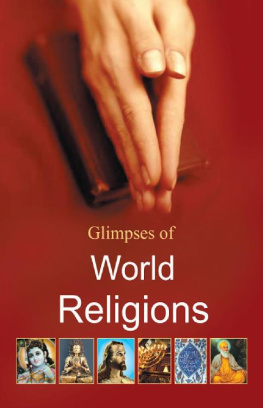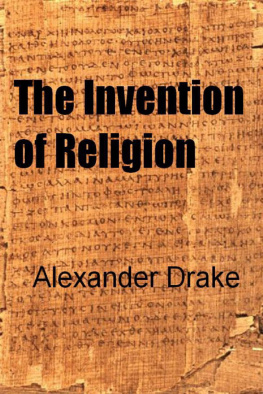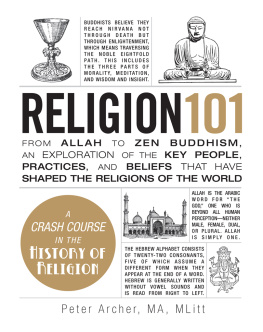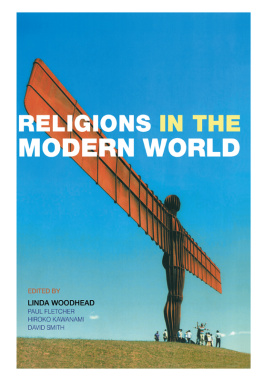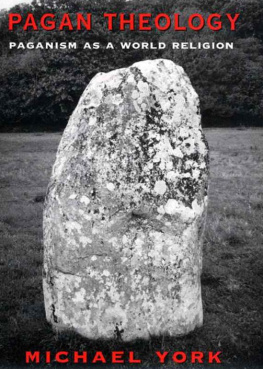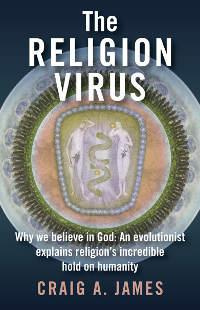THE FORBIDDEN RELIGION
Jose M. Herrou Aragon
All worldwide rights reserved
Copyright 2007 by Jose Maria Herrou Aragon
I.S.B.N.: 978-1-4717-2569-2
website: www.theforbiddenreligion.com
DIAGRAM

1. PRIMORDIAL GNOSIS
Primordial Gnosis is knowledge, wisdom. That is the meaning of the word Gnosis: knowledge. But we are not just referring to any knowledge here. Gnosis is very special knowledge. It is knowledge that causes a great transformation in those who receive it. Knowledge capable of nothing less than waking up and Spiritually liberating those who acquire it. That is its purpose: to throw light on the status of human beings and to try to wake up man and help him escape from the prison in which he finds himself. That is the reason why this knowledge has been repeatedly under attack throughout the course of history, because it is knowledge considered dangerous for the religious and political authorities who govern mankind from the shadows. For that reason Gnosis has always remained occult. Gnosis is secret knowledge, only accessible to those who deserve to have it. Different religions throughout history have tried to keep man ignorant of this knowledge, of this type of knowledge called Gnosis. Now we will find out why.
What I am calling Primordial Gnosis is the pure form of Gnosis. It is always the same and will never change as long as the Spiritual situation in which man finds himself and all that we call creation or world don't change. On the few occasions in the past in which Primordial Gnosis was openly exposed, it was not in its pure form but was adapted to the cultural and historical particularities of the time and place. However, Primordial Gnosis has always been behind almost every theological and philosophical system which has been branded heretic, forbidden, persecuted and forced to become occult. By examining this forbidden knowledge it is possible to recover the pieces necessary to reconstruct the whole of that which is Primordial Gnosis.
And if that knowledge were to be discovered and written down, it would be a very powerful and disturbing book. It would be the most dangerous text in the world, capable of waking up and liberating those who read and study it. Such a book would be a strange object in this created world, something not fabricated here, but coming from somewhere else, from another world completely different to this one. It would also be capable of surviving flames as well as time.
Throughout this book I will try to keep as close as possible to that which was and is Primordial Gnosis, Gnostic knowledge in its pure form.
2. MATTER IS EVIL
All religions maintain that matter is good, the world is good, it was created by God. And God is just, God is good and created something good for man. That is why the bible says And God said Let there be light', and there was light. And God saw that light was good.
Primordial Gnosis, which we can from now on just call Gnosis, with capital letters to differentiate it from other false gnosis which has appeared throughout the course of history, maintains the opposite: matter is evil and impure; matter is the prison of the Spirit. This material world is hell. Matter is evil, and if matter is evil it follows that its creator must also be evil. For Gnostics, the material world, this world, was created not by a good or just god but by a creator satan. Matter is something satanic, therefore whoever created it must also be a satanic being.
3. TIME IS EVIL
The bible doesn't say so but time started with the Big Bang. At the very start of creation when god said Let there be light, these four words could not have been spoken if time hadn't existed. Time was created by the creator god when he created light. The first great explosion and expansion could not have existed without time. Time and space were created together and are thus inseparable. Time is the breath of the creator god. And all his creation, the expansion of the universe, the evolution of species, the gradual development of his plan, could not occur without time. According to the Gnostics, the time-breath of the creator god is as satanic as matter and as satanic as the creator god himself.
4. THE CREATOR GOD
In the first centuries of our era many of the Gnostic sects viewed the creator god not as a good or just being, but as a satanic one. Many of them likened him to satan. Gustavo Adolfo Becquer relates in one of his accounts how the creator god Brahma created worlds, like bubbles, and how he experimented with them, as sometimes they turned out good and sometimes not. The creator god is not a completely perfect god but apparently quite inept. There are worlds which turn out badly and he has to destroy them. There are worlds that turn out better. He tries, practices, creates through trial and error. The bible says God said: Let there be light. And there was light. And God saw the light, that it was good. How! Didn't he know? Didn't he know it was something good? That is why Gnostics say we are in the presence of a creator ignorant of the effects of his creation.
Likewise, the creator god always maintains that he is the only one. He doesn't just say it once, he says it all the time, he is constantly saying I am the only God, there is no other God, I, your God, am the only one, etc. We all know that when someone repeats the same thing over and over again it is because they are not sure of what they are saying, which is why they have to repeat it so often. The Gnostics' interpretation of this is that the creator suspects, since he is not altogether sure, that there is another God higher than him. A God infinitely more superior to him, much bigger, much more important than him, and that is what he is trying to hide by incessantly repeating I am the only one, there is no other God.
Without a doubt, this creator god is the creator of the world, of all the worlds, the planets, the universe, matter and time. He is responsible for what physicists today call the Big Bang. Everything maintained by modern physics, that everything started with a huge explosion, a flash of light, coincides with most of the myths of all religions concerning the creation of the world. First god created light, then he created various other things until he managed to create animals and then finally, man. All these myths in the bible and other religious books agree with the modern-day conclusions of physicists and biologists concerning the creation of the world and man.
Of course this creation is full of mistakes and is imperfect. And if this world is imperfect, if matter is imperfect or if everything that exists in the universe is imperfect, it is because the creator of all this is an imperfect being.
Today a Gnostic would say for example dinosaurs were a stupid idea; it was a mistake, the creator had to wipe them out, eliminate them all and start again with another experiment, until he managed to do something with which he was satisfied. Because the creator god has plans. We will be looking later at what these are about.
Physicists also maintain, Albert Einstein for one, that the universe is not something infinite, but is like a kind of bubble, in which all creation is contained. The universe is finite, claimed Einstein. This creation is limited, it is like a huge bubble in which everything created by the creator god is contained, and we do not know what exists outside of this. Gnosis claims to know, as we shall now see.
In sacred books of various religions, which are said to be inspired by the creator god of the universe, we are related facts, details, which show the creator god to be an imperfect being and not entirely good. He is sometimes portrayed as being vindictive, bad-tempered, arrogant, insecure and indecisive. A god who loves sacrifices in his name, genocide, and who orders people to kill others, and their belongings, land, inhabitants and livestock to be taken away. He gives orders to kill not only his enemies but also women, children and animals. A god who commits genocide. This god demands sacrifices in his name, since he loves the smell of the burnt flesh of the victims sacrificed at the altar. This is the god who caused the Flood. How many hundreds of thousands of men drowned in the Flood! This is how it is related in the bible and other pre-biblical texts, like that of the Babylonian Flood for example. He has a taste for sacrificing people and animals and for the spilt blood of his enemies. He likes to be admired, adored, served, feared and obeyed. He likes the temples built in his honour, the rituals, the commandments, the accomplishment of his orders, the prayers sent up to him. He likes the pain suffered by all his living beings, the torture, the suffering. Ancient Gnostics used to call him Ialdabaoth which means son of chaos; sometimes he was called Sabaot: god of exertion. They also used to call him Kosmocrator or the Great Arconte, the creator and arranger of matter. But the name most commonly given to him by Gnostics is the demiurge, Greek for creator.



